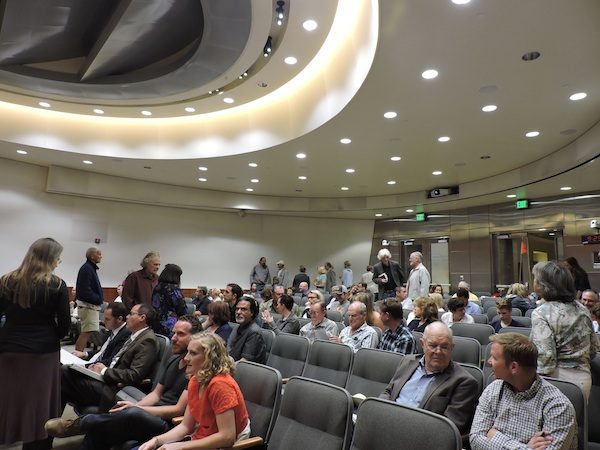County supervisors approve emergency oak forest protection ordinance
Motion passed 4-1 with Supervisor Debbie Arnold dissenting
–At a special meeting Friday, the San Luis Obispo County Board of Supervisors passed an emergency ordinance that would limit the removal or native oak forest and other native woodlands with a 4-1 vote. Supervisor Debbie Arnold was the one dissenting vote.
The ordinance includes forest that is both considered continuos canopy, and semi-continuous, and would limit the amount of oak trees that landowners could remove in total based on a percentage.
Landowners will be able to remove up to 5-percent of the oak tree canopy on their land. Exemptions will be allowed for trimming and pruning, removal of diseased trees, as well as tree removal for fire abatement. Further exemptions could also be allowed but would be up for discretionary review. Fallen trees not meet the definition of a tree under this ordinance.
If someone were to violate the ordinance, they could be fined up to $25,000, and would not be allowed to continue development on the property for seven years. The emergency ordinance has been enacted for 45 days, and extensions could allow the ordinance to be extended up to two years.
Supervisor Lynn Compton thought that the ordinance was too broad, and included too many types of trees, but said she was very much in favor of passing both an emergency and a permanent ordinance. She voted yes but said that she would not approve this emergency ordinance as a permanent solution.
Supervisor Bruce Gibson said that he feels strongly they needed to pass the ordinance, and that it speaks to the character of the board and their values. Gibson made the motion to adopt the ordinance with a few amendments. Supervisor Adam Hill spoke to environmental responsibility, and said over the last 15 years a significant amount of clear-cutting has taken place in the county. “It was not just, ‘one bad apple,'” he said. He seconded the motion.
Dozens of locals, representatives of environmental agencies, and landowners representing the ranching and farming community gave public comment, and the overwhelming consensus was that oak forest protection was important and needed to be addressed. Many speakers however were concerned that the language of the ordinance would restrict current landowners from continuing to be good stewards of their land.
Paso Robles resident Mark Adams said that the ordinance is, “unlikely to impose hardships for truly good stewards of the land,” and noted too that the issue was widespread deforestation, not one isolated incident. Paso Robles resident and vineyard owner Carol De Hart said that Santa Barbara and Monterey counties both have ordinances in place and urged the council to vote yes. Organizations such as the California Native Plant Society spoke in favor of adopting the ordinance.
Many recognized that the ordinance had potential flaws, but urged the board to, “risk the 45 days,” so that they could look at drafting a more permanent solution.
Supervisor Arnold, the one dissenting vote on the board, attempted to make a motion amending many parts, such as removing grazing land from one of the land use descriptions that would be subject to the ordinance. She also said it would be too difficult for ranchers to provide proof that a removed tree was diseased or dead to the county. She said it was, “assuming that people are cutting down healthy trees,” which in her opinion, didn’t happen very often with local, generational farmers. The Arnold family owns a ranching and farming business where they produce beef, hay and wine grapes.
Supervisor Gibson disagreed with Arnold’s amendments, and said that he felt there should be no difference regarding what the land was used for, whether it be rangeland or agriculture. He said that her amendments would allow for, “serious loopholes.”
Staff will begin work immediately on drafting up a permanent ordinance to look at protecting oaks longterm.






















